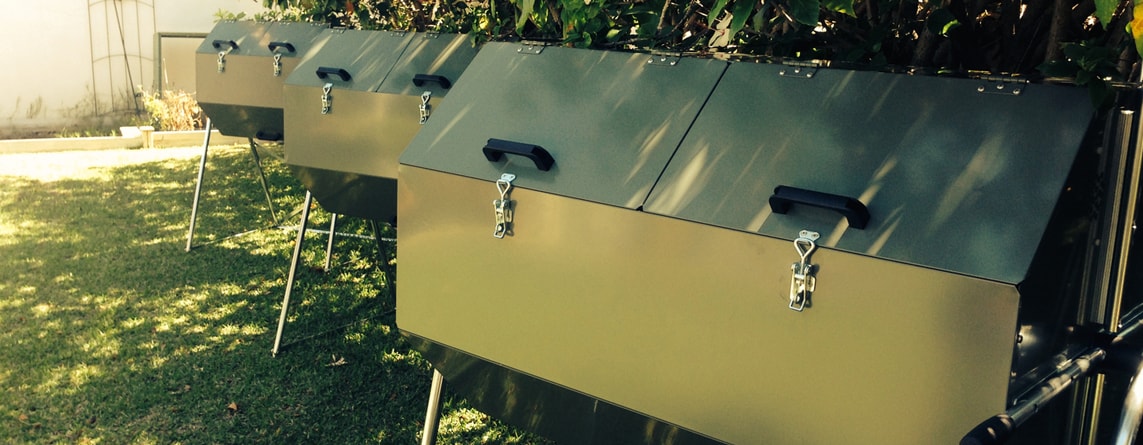The Jora JK 125/270 Composters can handle all organic waste generated by a regular household
Anything biodegradable – even pet waste, for example, your rabbit or hamster bedding can be composted.
In addition to the waste, which has a high nitrogen content, a source of carbon must be added to provide an energy source for the microorganisms. This is done by adding sawdust or wood pellets (which are simply compressed sawdust) when adding the waste. Add wood pellets in the ratio of 10:1 (waste to pellets) and sawdust in the ratio of 3:1 (waste to sawdust) by volume. The sawdust/ wood pellets also absorb moisture, keeping the mixture relatively dry. Wood shavings are not as successful as they do not absorb the moisture to the same degree as sawdust or wood pellets. Coir (coconut fiber) and dry, chopped straw may also be used.
Note to cat owners: wood pellets are also available as cat litter, so this is an excellent environmentally-friendly way of disposing of your cat waste!
It will take somewhere in the region of 6 to 8 weeks for each chamber from starting to fill to production of compost – so once both compartments are in operation, you should be emptying one chamber every 4-6 weeks or so.
Suitable for composting
- Food scraps (raw,cooked,fried,and smoked)
- Meat & bone (bones will be cleaned but not composed)
- Fish & bone (bones will compost)
- Shelifish
- Vegetables (raw and cooked)
- Eggs and egg shells
- Bread and biscuits
- Fruit (every kind)
- Coffee grounds and filters
- Teabags and tealeaves
- Paper (cross shredded or torn up into small pieces)
- Egg cartons (torn up into small pieces)
- Bedding from hamster / guinea pig cages
- Wood-pellet cat litter (used or unused)
- Soft plant waste
Unsuitable for composting
- Cigarette butts and cigarette ashes
- Chewing gum
- Tinfoil and other metals
- Rubber and plastic items
- Vacuum cleanner bags
- Milk or juice cartons, cling film
- Sawdust from treated wood
- Liquids – milk soup etc.
- Disposable nappies/diapers
- Non wood-pallet based cat litter
- Hard, woody plant stems (even if shredded)

